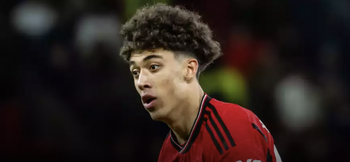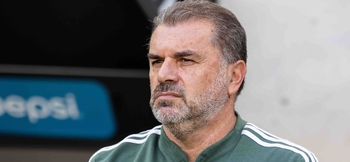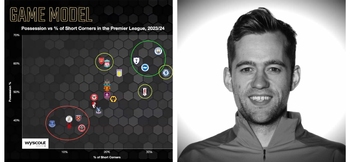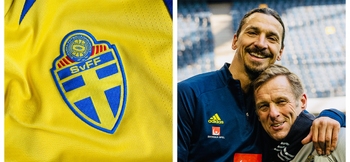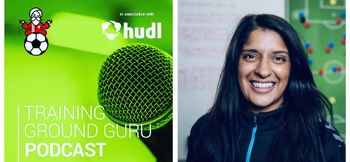Lee Johnson: How Bristol City organise and innovate during lockdown
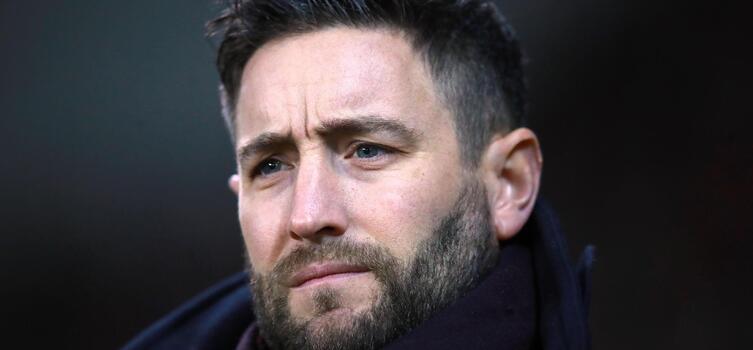
Bristol City are currently seventh in the Championship
Written by Training Ground Guru — April 19, 2020
BRISTOL CITY manager Lee Johnson has explained how he's trying to ensure there's structure, camaraderie and innovation at the club despite the coronavirus lockdown.
The Robins haven't played a match since their 1-1 draw with Fulham on March 7th and they closed their training ground shortly after fixtures were postponed on March 13th.
In an illuminating interview with Sky Sports, the 38-year-old outlined the lockdown routine for him and his squad.
“First and foremost, finding that little bit of structure is key,” he said. “So I go through a process in the morning where I answer my emails, speak to the club PA.
“Moving on from that, I get in touch with the CEO (Mark Ashton), to make sure he's okay and see if there's anything he needs me to do. Then we have a webinar staff meeting, normally about half 10, and then I have pre-designed work to do, whether it be on philosophy or looking at opposition or potential recruits moving forward.
“What we've been trying to do is every other day is holding a little tactical webinar with the boys.
"The first 15 minutes is normally just banter and everything that can be picked on, will be picked on. That's good because we can look in each other's eyes. You can get a little sense of the body language, make sure everybody's okay.
“Then we get into stills and we've been talking about certain situations. It's difficult over these type of platforms to show video footage because it can get a bit jumpy. But from stills we pick out certain tactical situations, whether it be our games or Champions League game, and just talk through them.
“That's good because you get an understanding of whether the players are taking in your philosophy and the terminology becomes important in that. We've also got a referee's quiz on the laws of the game, because you could probably take a test and I bet 90% of footballers wouldn't be adept.
"We've got a really good group here, in terms of they're hungry to learn and it's actually very easy to communicate and get them to understand how they can add bits to their game to make them better players.
“We have decent resources and have designed our own app that works all the way through the club.”
TGG covered the creation of this new app in December 2017. It was developed by a local development company and allows Johnson's players to watch drone footage and play-books from training on their smartphones.
INNOVATION
The Robins manager has previously spoken about how he spent time at the A&E department of a local hospital and with the SAS to learn about how they perform under pressure. He insists that he is still learning, despite the lockdown.
“I’ve just come off two webinars and you can be listening, listening, listening, and then, all of a sudden, one little piece comes out of it and you can drag that into your philosophy and build around that area," he said.
“I think the more experienced managers have done that and fine-tuned as they've gone on during their careers. That's what's made them successful. I'm at the stage where I'm at a very good football club with a decent amount of experience, maybe 300 to 400 games behind me, but am still learning all the time.
"I'm always trying to pick up little golden nuggets of philosophy or terminology.
"I spent time not just in football, but with the SAS and the NHS, particularly with that thinking correctly under pressure theme.
“When you're on the sideline, it's very difficult to articulate and explain unless you've been there that it's very intense and there's a lot going on. To make the right decisions in those moments are obviously key.
“When you can sit back and reflect and be that Monday morning quarterback, if you like, like we all are when we're not watching our own games, then it can be easy to determine what went wrong, but, in that moment of pressure on the sideline, obviously it's very important and there are skills and techniques to try and develop those.”
TACTICAL PERIODISATION
The 38-year-old explains how he uses a tactical periodisation model - which we've covered in depth on the site before - and detailed a typical training week during the season.
“Tactical periodisation is an organisational structure where every single thing you do feeds into the way you want to play,” he said. “The start is a tactical piece. Obviously, the tactical and the physical go hand in hand but there's also extended physical in terms of gym programmes.
“You've then got the social, which is very important. We go beyond that and move into family social and mental health. We put on presentations and powerpoints to players' wives because that's important as well. It’s all built into this organisational structure.”
He then outlined a typical Saturday-to-Saturday week with no midweek game.
“The boys will come in on Monday,” he said. “The players who started on Saturday will generally have a tactical recovery so we work on everything that went wrong - whether we won 5-0 or lost 5-0, we'll still review what went wrong on that Monday.
“If it's not been too difficult a physical game, then we'll go out on the pitches and work there, if not we'll work in the studio on the analysis. Obviously the ones who haven't played will have a full-on session.
"Tuesday and Wednesday it enables us to bring everybody together. Tuesday is a little bit more for the players, so I won't drip feed too many tactics in there. They probably won't realise the theme is building up to the end of the week but maybe there'll be little nuggets, or horse whispering as I would call it, to individuals about planning and mentally preparing for the weekend.
“Tuesday afternoon is often filled with sports science work and the physical. Sometimes technical physical but generally more in the gym type of structure.
“On a Wednesday, it starts to build up and become very tactical into a Saturday, how we feel we're going to infiltrate the opposition's weaknesses and defend against theirs.
“Depending on who we're playing, how the game has gone before and what we need themed, we'll try and structure probably maybe five sessions into a Wednesday.
“We'll send out some individuals as a unit, maybe wide men and full-backs to work in wing play, and then the rest of the group will join, then maybe we'll be left over with strikers to work on movements and finishing.
“Wednesday afternoon, sometimes we're out and working on set plays, or finishing various gym work and plyometric-type work, but definitely speed and endurance.
“Depending on how the week has gone, we may have Thursday off or have a group in. Friday becomes a sharpener of both body and mind, then obviously the set pieces you work on just to make sure everybody is clear of the game plan.
"Then obviously everything repeats off the back of that after the game.”









